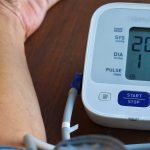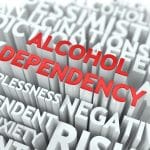How Alcohol Can Weaken Your Immune System
Alcohol can weaken your immune system in a variety of ways. Reduced ability to fight infection, incomplete healing from wounds, acute respiratory distress, alcohol-related liver disease, and other forms of impaired immune function have been observed in patients who drink heavily.
As your alcohol intake increases, your risk of compromising your immune system may increase as well.
Alcohol-Related Immune System Impairment
Your immune system protects many vital portions of your body from disease, infection, and other health problems. The negative effects of alcohol can spread to your immune system, impairing its ability to keep your body healthy, putting many organs and areas of the body at risk.
Gastrointestinal Tract
Your gastrointestinal or GI tract houses countless microorganisms that communicate with your body’s immune system and maintain your digestive health. Alcohol can disrupt the natural environment of your GI tract, interfering with communication in your immune system.
Alcohol can also damage immune cells in your GI tract, potentially leading to leakage. Bacteria that leak from the GI tract can circulate to other parts of the body and trigger harmful immune responses.
Chronic Liver Disease
Bacteria that leaks from the GI tract to the liver can trigger an immune response in the liver, causing liver inflammation or hepatitis. Hepatitis can reduce the liver’s ability to filter out toxic substances from the body.
If left untreated, alcohol-related hepatitis can progress into liver cirrhosis, where scar tissue forms on the liver. Cirrhosis can then lead to liver cancer, liver failure, and death.
Damage To The Respiratory System
Alcohol circulating through the body can harm immune cells in the lungs, such as alveolar macrophages. It can also interfere with cilia, hair-like structures in the lungs that clear obstructions out of your airway.
These effects and others can increase your risk of cardiovascular diseases such as pneumonia, tuberculosis, and an acute form of lung damage known as acute respiratory distress syndrome (ARDS).
Ability To Fight Infections & Disease
An impaired immune system can harm your body’s ability to fight viral infections, such as the novel coronavirus.
While ethanol is a key ingredient in hand sanitizer, drinking alcoholic beverages containing ethanol is not a safe or approved method of preventing infectious disease.
Healthy immune systems can reduce your risk of cancer, while improving your ability to fight existing cancers. However, compromised immune systems due to alcohol abuse can affect the progression and outlook of certain cancers.
Alcohol Consumption Habits & Immune System Disruption
Heavy drinking has a well-known link to a compromised immune system, but any form of excessive alcohol consumption can have negative effects on your immune function and overall health.
Binge drinking alcohol, a form of drinking where you consume a high amount of alcohol in one sitting, can lead to an increased risk of risky behaviors and injury. Binge drinking can also impair the body’s ability to recover from these injuries.
Alcohol Use Disorder
Some studies have suggested that a compromised immune system can lead to a higher risk of alcohol use disorder (AUD).
The immune system can communicate with the brain, but alcohol can lead to inhibition of the immune system in this area, promoting behaviors that lead to AUD such as heavy drinking.
Alcohol’s effects on the body and immune system are widespread and potentially dangerous. Even if you are suffering from health issues due to alcohol, it can be difficult to stop drinking due to alcohol’s habit-forming nature.
Professional treatment can help you quit drinking while teaching you how to manage health issues caused by alcohol. To learn if our treatment program is right for you or your loved one, please contact Northeast Addictions Treatment Center today.
Sources
Written by
Northeast Addition Editorial Team
©2024 Northeast Addition Center | All Rights Reserved
This page does not provide medical advice.





